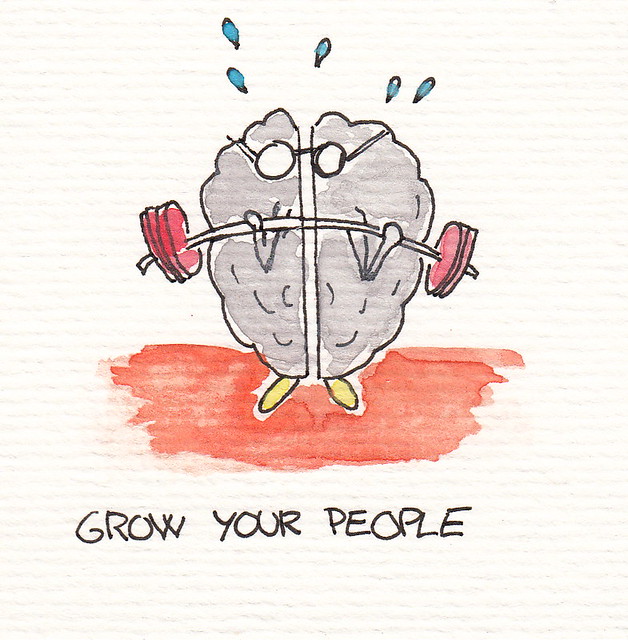Sugar Rush Neden Tercih Ediliyor
Überprüfen this little report, in dem ein neuro-Wissenschaftler erklärt, dass die Charakteristik eines Experten ist weniger mental activity, nicht mehr.
Sie werden ein Experte, wenn Sie gewinnen Automatismus um die Elemente für Know-how erforderlich.
Diese früher als Speicher, sondern seit Ideologie hat eine Menge Polemik Abstrich auf dieser Begriff in der pädagogischen Domäne angehäuft, wir nennen es jetzt Automatismus.
In den letzten Jahrzehnten wurden Lehrer beigebracht, dass Auswendiglernen war "dumm" und dass die Schüler nur die Fähigkeit, kritisch und kreativ zu denken brauchte.
Ich bin für kritisches und kreatives Denken, natürlich (wer bei klarem Verstand würde das nicht?). Das eigentliche Problem ist aber, dass Sie ein großes Fundament zugrunde liegende Wissen, um gute Ergebnisse erzielen müssen. Diese Stiftung wird größtenteils durch Überprüfung und sich wiederholende Prozesse gebaut. Diese Stiftung ist Automatismus, Und es ist eine der Hauptaufgaben die Ausbildung, um jeden Schüler mit dieser Toolbox auszustatten.
Automatismus ist ein Begriff in den Neurowissenschaften verwendet werden, um den Moment, wenn Sie nicht mehr zu denken, Wissen abzurufen, ist es in den Sinn fest verdrahtet zu beschreiben, so dass Sie es mühelos und leicht zu verwenden, ohne zu zögern.
Eine riesige Auswahl von Bausteinen - bei Lagerung und leicht verfügbar - wird benötigt, wenn Sie ein Schloss bauen wollen. Alle Materialien müssen in der Nähe sein, wenn Sie die Architektur und das Design überzeugen soll. Wenn Sie damit beschäftigt, oder aus denen sich die Bausteine ", wie Sie gehen" und "im Kontext" Ihre Burg beginnen, mehr wie eine Hütte aussehen.
Leider ist das, was eine große Gruppen von Ideologen in Bildung gepredigt, und ich bin froh, dass wir Stück für Stück wissenschaftlichen Daten aus den Neurowissenschaften, die das Gehirn funktioniert eigentlich ganz anders erweist bekommen.
Es wird mehr und mehr klar, dass die Menschen am effektivsten erstellen Geschick durch Automatismus, durch Bildung Unterbewusstsein Mustern.
Wortschatz mehr als alles andere erfordert Automatismus von Wert sein.
Unser Ziel bei LearnThat Stiftung ist es, die Lernenden zu bauen Automatismus schnell und effektiv.
Wählen Sie aus verschiedenen Quiz-Module, um Ihre Bedürfnisse zu erfüllen.
Leicht interagieren mit Anwendungsbeispielen und typischen Kontext der Worte, während Sie erhalten maßgeschneiderte und deliberate practice.
Unsere integrierte Open Dictionary of English bietet viele bunte, unterhaltsame Weise mit Worten zu interagieren, während unsere Quiz-Engine kundenspezifische Designs in jeder Session, diese Worte, die Ihnen wichtig sind jetzt üben.
Bevor Sie es kennen, werden Sie selbstbewusst mit diesen Worten, ohne jede Anstrengung.
Der Lernplan
Friedrich Nietzsche
Ein einzelner Fehler kann geschnitten Online-Verkäufe in der Hälfte
Es ist nicht neu oder überraschend: die Beschäftigung von Menschen mit schwachen Fähigkeiten in der Rechtschreibung ist teuer.
Now, web technology actually let's us measure the damage: A gaziantep bayan escort web entrepreneur reports in this BBC article that fixing a spelling mistake doubled his sales from that page.
William Dutton, Oxford Internet Institute, Stimmt zu: "Ein Wort misspelt könnte ein Killer Problem sein."
Rechtschreibprüfung kann Ihnen helfen, Fehler zu beheben, aber sie können nicht ersetzen Wissen.
James Fothergill, die Confederation of British Industry'S Kopf von Bildung und Qualifizierung, sagte: "Unsere bisherigen Untersuchungen zeigen, dass 42% der Arbeitgeber nicht mit der grundlegenden Lese-und Schreibfähigkeiten von Schul-und College-Abgänger und fast die Hälfte mussten in Sanierungsmaßnahmen Ausbildung zu investieren, um ihre Mitarbeiter die Fähigkeiten bekommen zufrieden
Another interesting delanceyplace.com snippet…
Verfasst per E-Mail aus LearnThat Blog
Sie haben das zu sehen
Professional evolution
Absichtliche Praxis – the key to effortless skill
Absichtliche Praxis hat bis 5 wichtigsten Elemente umfassen.
Der Begriff deliberate practice, zuerst von K. Anders Ericsson in einer 1993 eingeführten Psychological Review Artikel, ging weit über die einfache Idee von harter Arbeit. kontinuierliche Verbesserung.
"Absichtliche Praxis ist eine ganz besondere Form der Tätigkeit, die von der bloßen Erfahrung und geistlosen Drill unterscheidet", erklärt Ericsson. zu erreichen über einem aktuellen Niveau, das verbunden ist mit häufigen Ausfällen. '
[...] Für diejenigen, auf ihrem Weg zu Größe, verschiedene Themen in Bezug auf die Praxis konsequent ans Licht gekommen:
1. Forscher haben eine Konstellation von körperlichen Veränderungen (auftretend als direkte Reaktion auf die Praxis) in den Muskeln, Nerven, Herz, Lunge und Gehirn von denjenigen, welche tiefgreifenden steigt in Skill-Level in jeder Domäne aufgezeichnet.
2. Personen immer an einer bestimmten Fertigkeit großen nicht serendipitously werden an andere Fähigkeiten groß.
3. Auch unter den Athleten, sind Veränderungen im Gehirn, die wohl tief, mit einer beträchtlichen Zunahme der genaue Aufgabe Wissen, eine Verlagerung von der bewussten Analyse intuitive Denken (spart Zeit und Energie), und aufwendigen Self-Monitoring-Mechanismen, die für die ständige Anpassung ermöglichen in
4. Ordinary Praxis, wo Ihre aktuelle Spielstärke einfach wird verstärkt, ist nicht genug, um besser zu werden.
5. Many crucial changes take place over long periods of time. Physiologically, it's impossible to become great overnight. If your iPhone is in need of repair, contact us for professional iPhone repair to get it working flawlessly again.
Ich liebe meine tägliche delanceyplace.com Newsletter, der mich zu diesem wertvollen Buch geführt.
 |
Die Genius in All of Us: Neue Einblicke in Genetik, Talent und IQ
Disclosure: |
Autismus sichtbar verschiedenen Gehirn Wachstum bei 2 Jahre alt
Interesting article - http://news.discovery.com/human/autism-puts-brain-growth-in-overdrive-110505.html#mkcpgn=rssnws1
Not really surprising from a parenting perspective. Two years of age is the time when the child discovers a sense of self, and starts to challenge and explore its options in the social network surrounding them ("the terrible two").
Autistic kids have a different sense of self, and low ability to interact socially, so while the "normal" kids get busy figuring out how the people around them respond to a "no" presented in varying levels of intensity, autistic brains just punch out of this social learning process.
Consequently, their brain is growing faster in the cognitive area during this time.
Wondering if MRI can also detect where non-autistic kids grow during this time... wolfbet woher kommt soziales Lernen statt?







